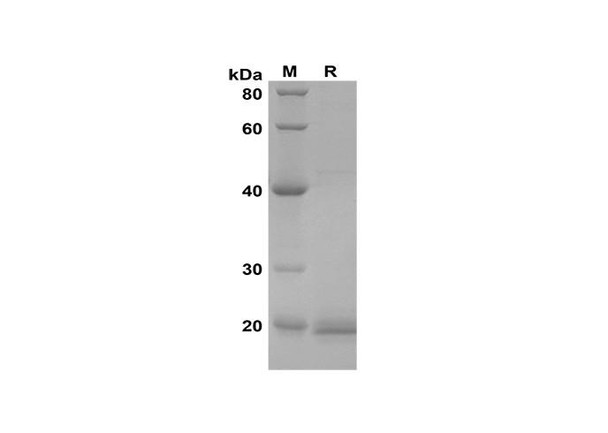Epiregulin (Epiregulin) is a member of the epidermal growth factor family. Epiregulin (Epiregulin) can function as a ligand of EGFR (epidermal growth factor receptor), as well as a ligand of most members of the ERBB (v-erb-b2 oncogene homolog) family of tyrosine-kinase receptors. Epiregulin (Epiregulin) exhibit bifunctional regulatory properties: it inhibit the growth of several epithelial tumor cells and stimulated the growth of fibroblasts and various other types of cells. Epiregulin (Epiregulin) bound to the EGF receptors of epidermoid carcinoma A431 cells much more weakly than did EGF, but was nevertheless much more potent than EGF as a mitogen for rat primary hepatocytes and Balb/c 3T3 A31 fibroblasts. These findings sμggest that epiregulin (Epiregulin) plays important roles in regulating the growth of epithelial cells and fibroblasts by binding to receptors for EGF-related ligands. Epiregulin (Epiregulin) is the broadest specificity EGF-like ligand so far characterized: not only does it stimulate homodimers of both ErbB-1 and ErbB-4, it also activates all possible heterodimeric ErbB complexes.






